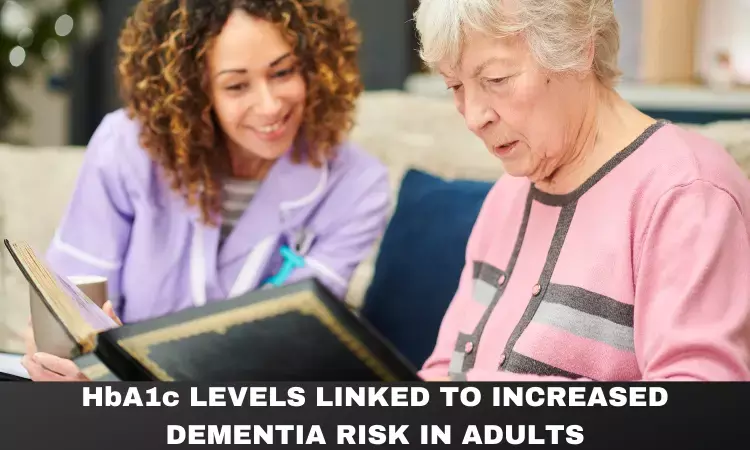- Home
- Medical news & Guidelines
- Anesthesiology
- Cardiology and CTVS
- Critical Care
- Dentistry
- Dermatology
- Diabetes and Endocrinology
- ENT
- Gastroenterology
- Medicine
- Nephrology
- Neurology
- Obstretics-Gynaecology
- Oncology
- Ophthalmology
- Orthopaedics
- Pediatrics-Neonatology
- Psychiatry
- Pulmonology
- Radiology
- Surgery
- Urology
- Laboratory Medicine
- Diet
- Nursing
- Paramedical
- Physiotherapy
- Health news
- Fact Check
- Bone Health Fact Check
- Brain Health Fact Check
- Cancer Related Fact Check
- Child Care Fact Check
- Dental and oral health fact check
- Diabetes and metabolic health fact check
- Diet and Nutrition Fact Check
- Eye and ENT Care Fact Check
- Fitness fact check
- Gut health fact check
- Heart health fact check
- Kidney health fact check
- Medical education fact check
- Men's health fact check
- Respiratory fact check
- Skin and hair care fact check
- Vaccine and Immunization fact check
- Women's health fact check
- AYUSH
- State News
- Andaman and Nicobar Islands
- Andhra Pradesh
- Arunachal Pradesh
- Assam
- Bihar
- Chandigarh
- Chattisgarh
- Dadra and Nagar Haveli
- Daman and Diu
- Delhi
- Goa
- Gujarat
- Haryana
- Himachal Pradesh
- Jammu & Kashmir
- Jharkhand
- Karnataka
- Kerala
- Ladakh
- Lakshadweep
- Madhya Pradesh
- Maharashtra
- Manipur
- Meghalaya
- Mizoram
- Nagaland
- Odisha
- Puducherry
- Punjab
- Rajasthan
- Sikkim
- Tamil Nadu
- Telangana
- Tripura
- Uttar Pradesh
- Uttrakhand
- West Bengal
- Medical Education
- Industry
High HbA1c levels may increase dementia risk in type 2 diabetes patients: JAMA

Australia: Dementia is a growing concern, especially in older populations. New research published in JAMA: Neurology suggests that adults with type 2 diabetes may have a higher risk of developing dementia if their HbA1c levels are 9% or higher.
Previous research has shown a strong association between type 2 diabetes and cognitive impairment, including dementia. The study aimed to identify the levels of glycemic control associated with the lowest risk of dementia, which is important for setting patient-centered glycemic targets. The study also included dementia risk across demographic factors such as sex, race, and ethnic groups along with the association of current therapeutic glycemic targets.
The cohort study included over 253,211 participants of the Kaiser Permanente Northern California integrated healthcare system with type 2 diabetes who were aged 50 years or older during the study period from January 1, 1996, to September 30, 2015.
Individuals with prevalent dementia at baseline, fewer than 2 HbA1c measurements during the study period, or less than 3 years of follow-up were excluded. More than half of the participants were men, and the mean follow-up duration was 5.9 years.
The study concluded with the following clinical findings:
- 1.Participants with more than 50% of HbA1c measurements at 9% to less than 10% or 10% or more had a greater risk of dementia compared to those with fewer measurements in those categories.
- 2.Participants with more than 50% of HbA1c concentrations less than 6%, 6% to less than 7%, or 7% to less than 8% had a lower risk of dementia.
The study also found that current therapeutic glycemic targets for older people with type 2 diabetes are appropriately relaxed. The results support current guidelines recommending a less stringent glycemic target for older adults with diabetes.
The study's lead author, Dr. Chris Moran, stated, "We found that moderate glycemic control is optimal for dementia prevention in people with type 2 diabetes. We hope these results can inform guidelines for individualized glycemic targets for older adults with diabetes, with an eye towards protecting cognitive health in addition to overall physical health."
Reference:
Moran C, Lacy ME, Whitmer RA, et al. Glycemic Control Over Multiple Decades and Dementia Risk in People with Type 2 Diabetes. JAMA Neurol. Published online April 17, 2023. doi:10.1001/jamaneurol.2023.0697
Dr. Mahalakshmi Sivashankaran joined Medical Dialogues as an Intern in 2023. She is a BDS graduate from Manipal College of Dental Sciences, Mangalore Batch 2022, and worked as a Junior Resident at VMMC & Safdarjung Hospital at the Department of Dental Surgery till January 2023. She has completed a Diploma in Executive Healthcare management from the Loyola Institute of Business Administration, developing skills in Healthcare Management and Administration. She covers several medical specialties including Dental, ENT, Diagnostics, Pharmacology, Neurology, and Cardiology.
Dr Kamal Kant Kohli-MBBS, DTCD- a chest specialist with more than 30 years of practice and a flair for writing clinical articles, Dr Kamal Kant Kohli joined Medical Dialogues as a Chief Editor of Medical News. Besides writing articles, as an editor, he proofreads and verifies all the medical content published on Medical Dialogues including those coming from journals, studies,medical conferences,guidelines etc. Email: drkohli@medicaldialogues.in. Contact no. 011-43720751


